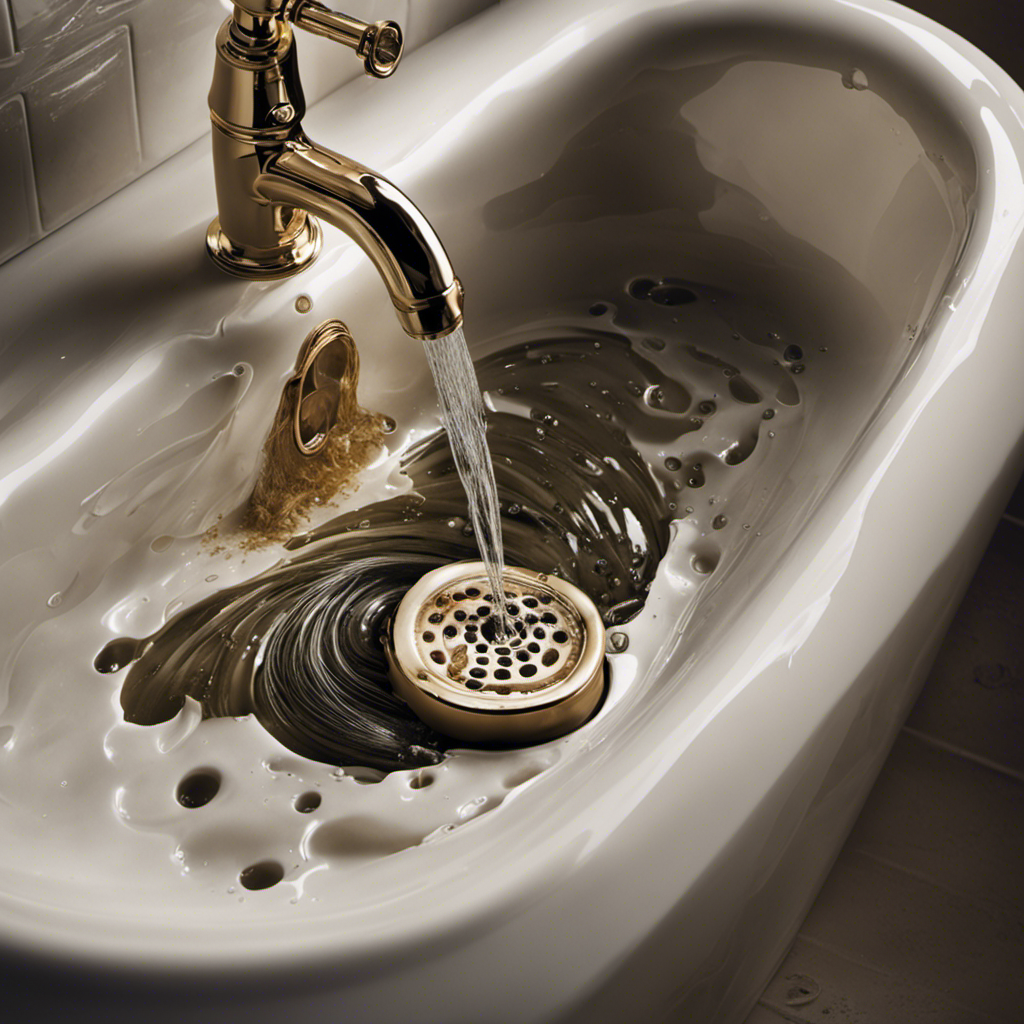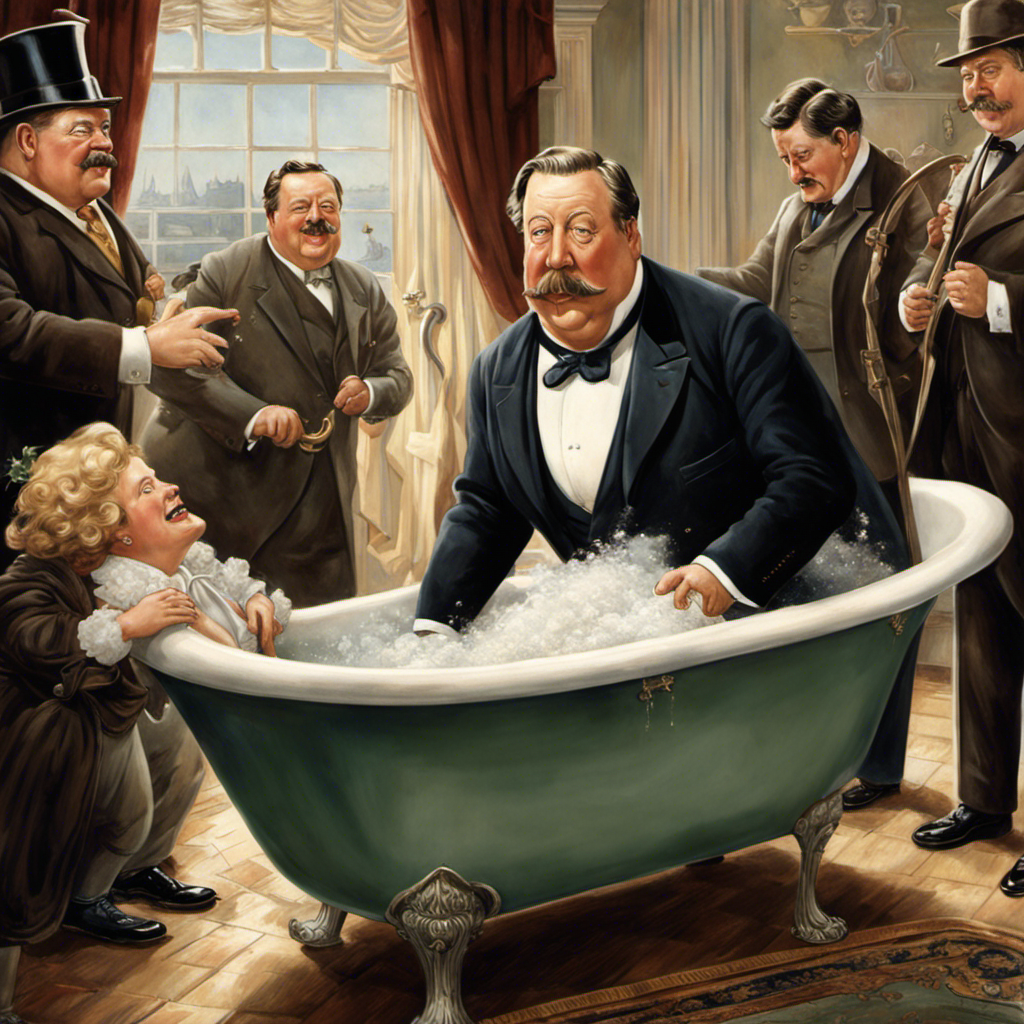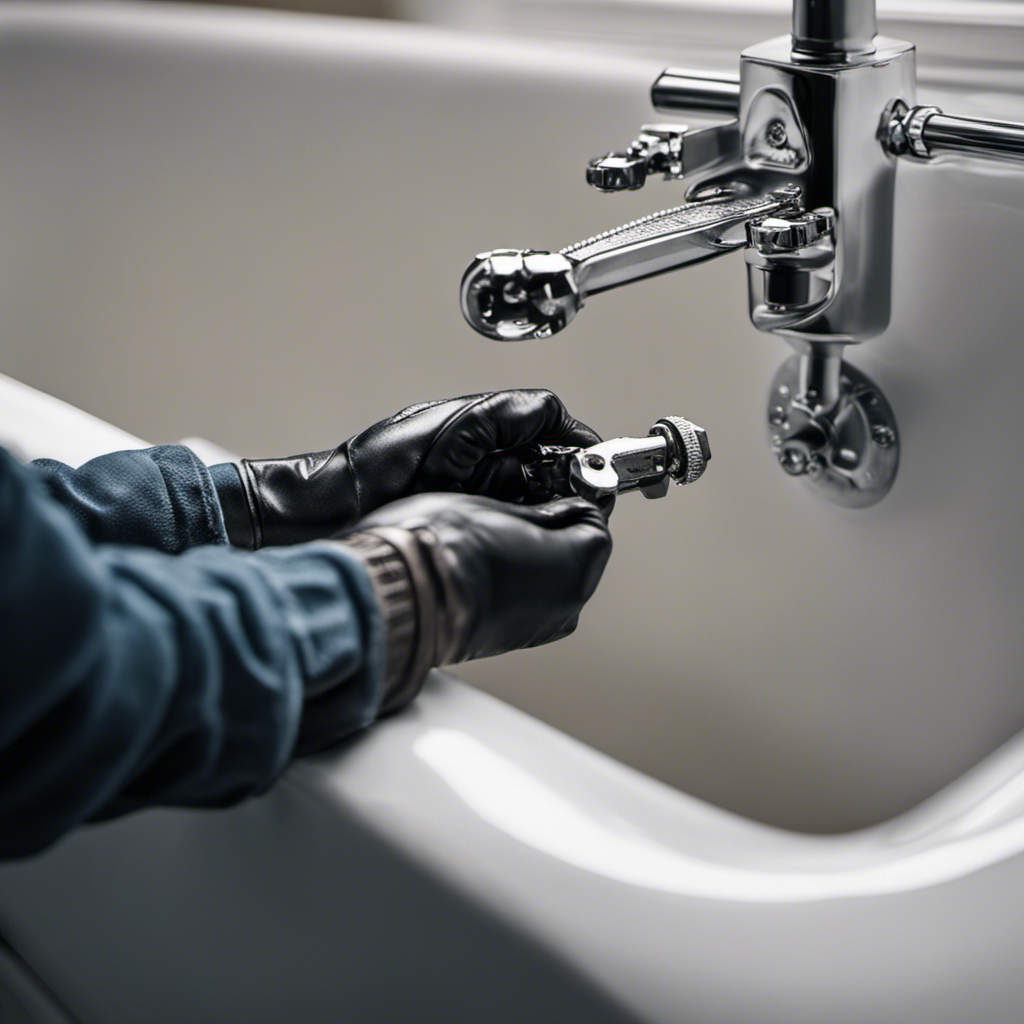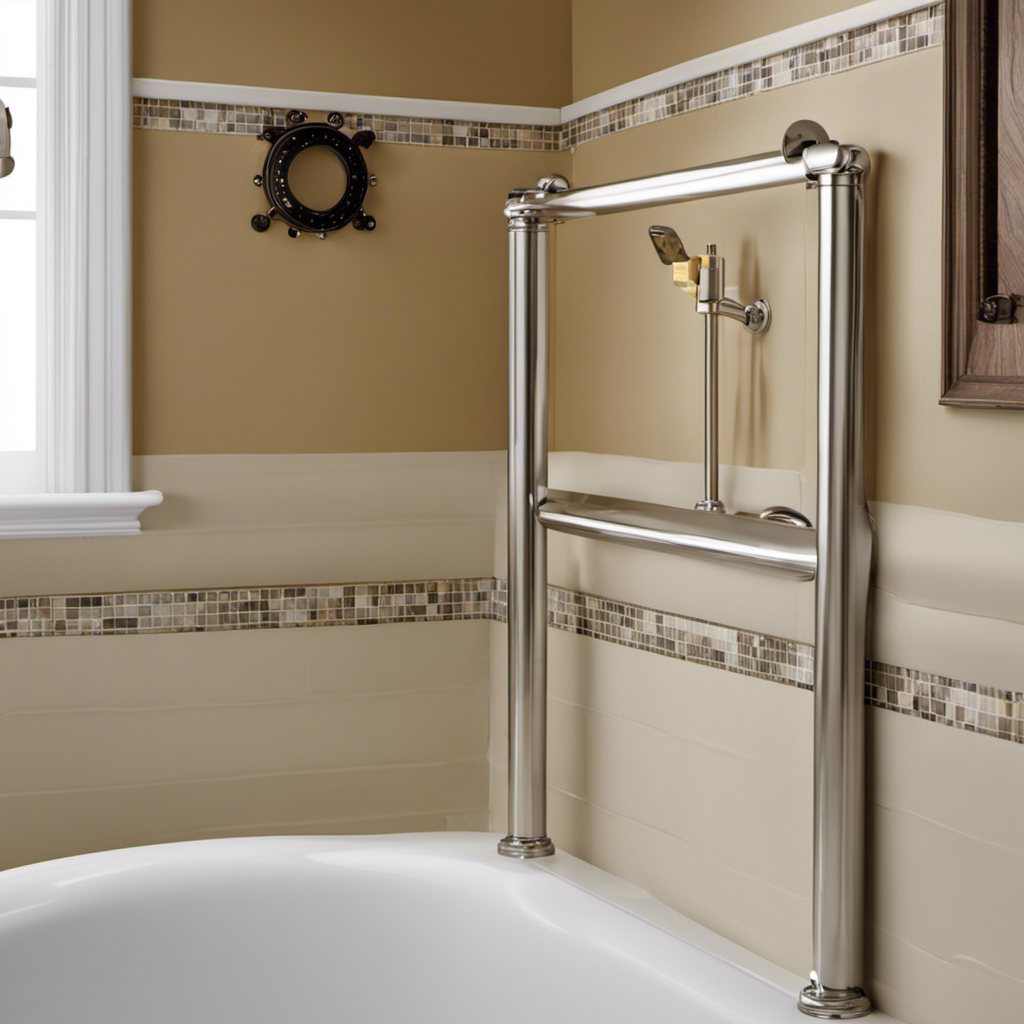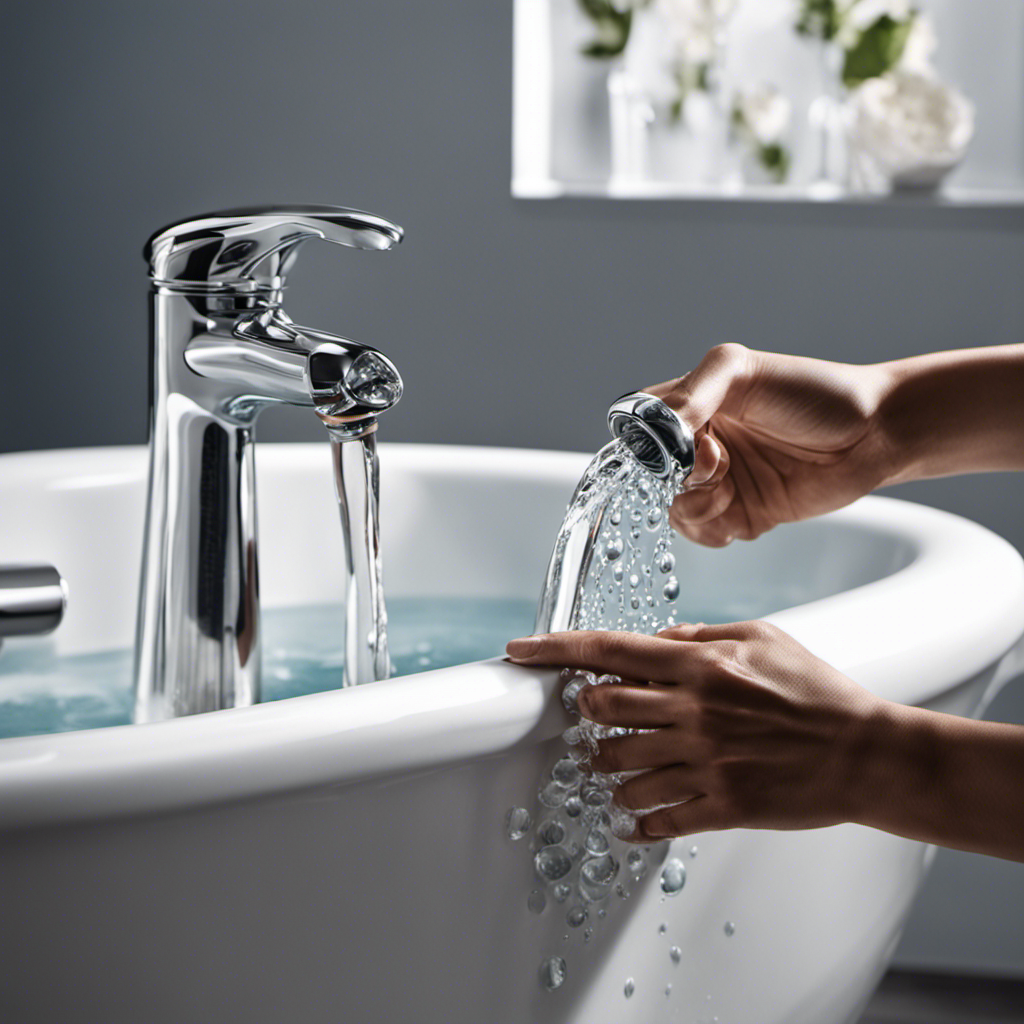As plumbing professionals, we ponder the perils of plunging cotton swabs down the porcelain throne. Will they wreak havoc on our delicate pipes? Or is this a harmless habit we can continue without worry?
In this article, we analyze the potential risks to your plumbing system and delve into the environmental impact of flushing cotton swabs. We’ll explore alternatives to flushing and offer tips for maintaining a healthy toilet system.
Prepare to master the art of proper disposal and keep your pipes pristine.
Key Takeaways
- Flushing cotton swabs can lead to clogs in the pipes, causing disruptions in water and sewage flow.
- Improper disposal of cotton swabs can harm the environment and contribute to microplastic pollution in waterways.
- Cotton swabs made from biodegradable materials like bamboo or paper are a safer alternative to traditional cotton swabs.
- To maintain a healthy toilet system, only flush toilet paper and bodily waste, and avoid flushing items like cotton swabs, wipes, and feminine hygiene products.
Potential Risks to Your Plumbing
Flushing cotton swabs down the toilet poses potential risks to our plumbing. While it may seem like a convenient way to dispose of these small items, doing so can lead to significant damage and costly repairs.
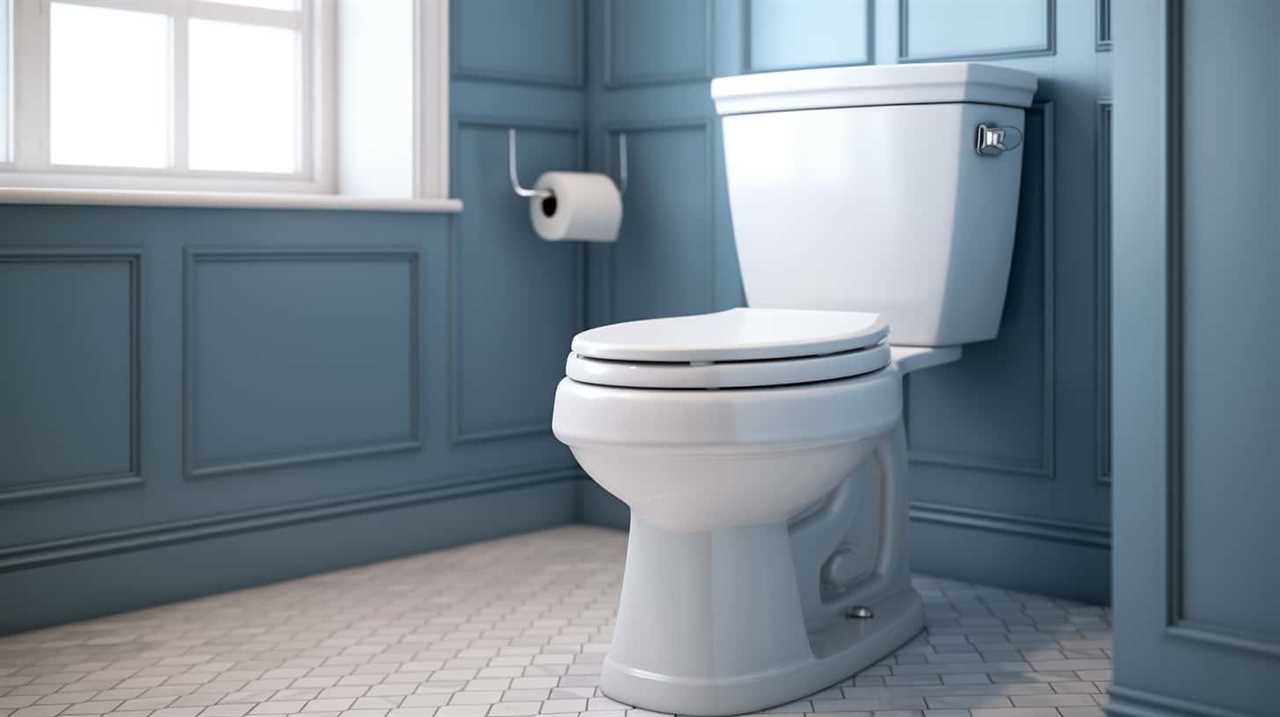
The main risk is the potential for clogs in the pipes. Cotton swabs can easily become lodged in the plumbing system, causing blockages that can disrupt the flow of water and sewage. This can result in backups, leaks, and even burst pipes.
Additionally, the materials used to make cotton swabs, such as plastic or wood, aren’t easily broken down by the water treatment process. This can lead to environmental damage, as these materials may end up in our waterways.
It’s essential to properly dispose of cotton swabs in the trash to avoid these risks and prevent damage to our plumbing system.
Environmental Impact of Flushing Cotton Swabs
When disposing of cotton swabs down the toilet, we must consider the environmental impact. Flushing cotton swabs can have detrimental effects on our wastewater treatment systems and contribute to microplastic pollution in our waterways. Wastewater treatment plants are not designed to remove small items like cotton swabs, and they can cause clogs and blockages in the system. Additionally, cotton swabs are made of plastic, which does not biodegrade and can break down into microplastics over time. These microplastics can then enter our waterways, posing a threat to aquatic life and potentially contaminating our drinking water. To better understand the environmental impact of flushing cotton swabs, let’s take a look at the table below:
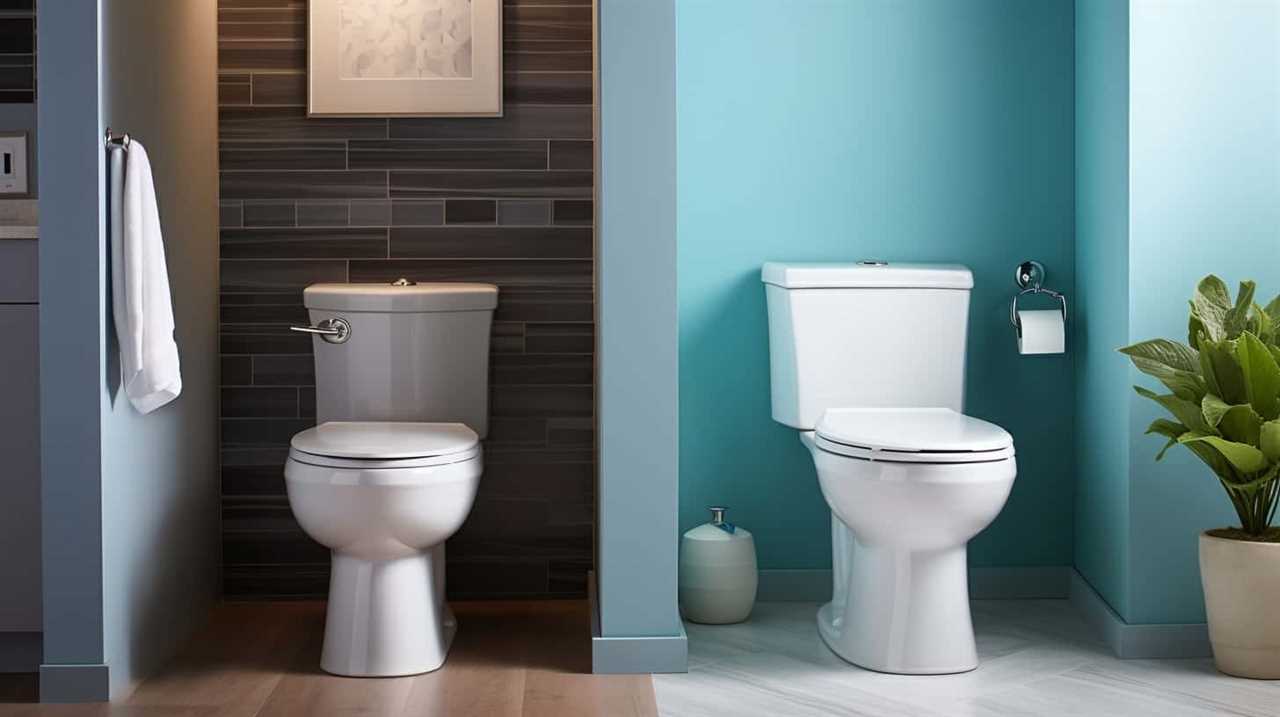
| Environmental Impact of Flushing Cotton Swabs | |
|---|---|
| Wastewater Treatment | Increased risk of clogs and blockages in the system |
| Microplastic Pollution | Contamination of waterways and potential harm to aquatic life |
Considering the negative consequences, it is crucial to explore alternatives to flushing cotton swabs.
[Transition sentence: Now, let’s delve into some alternatives to flushing cotton swabs.]Alternatives to Flushing Cotton Swabs
To address the environmental concerns associated with flushing cotton swabs, let’s explore some alternative disposal methods. There are several sustainable options and eco-friendly alternatives to consider:
- Trash Bin: Instead of flushing cotton swabs down the toilet, simply dispose of them in a trash bin. This ensures that they’ll be properly handled and disposed of in a landfill or through other waste management processes.
- Biodegradable Swabs: Look for cotton swabs made from biodegradable materials, such as bamboo or paper. These swabs are designed to break down naturally over time, reducing their impact on the environment.
- Note: Ensure that the packaging of these swabs is also eco-friendly.
Proper Disposal Methods for Cotton Swabs
One effective method for disposing of cotton swabs is to place them in a designated trash bin. It’s important to avoid flushing cotton swabs down the toilet, as they can cause clogs and damage to the plumbing system.
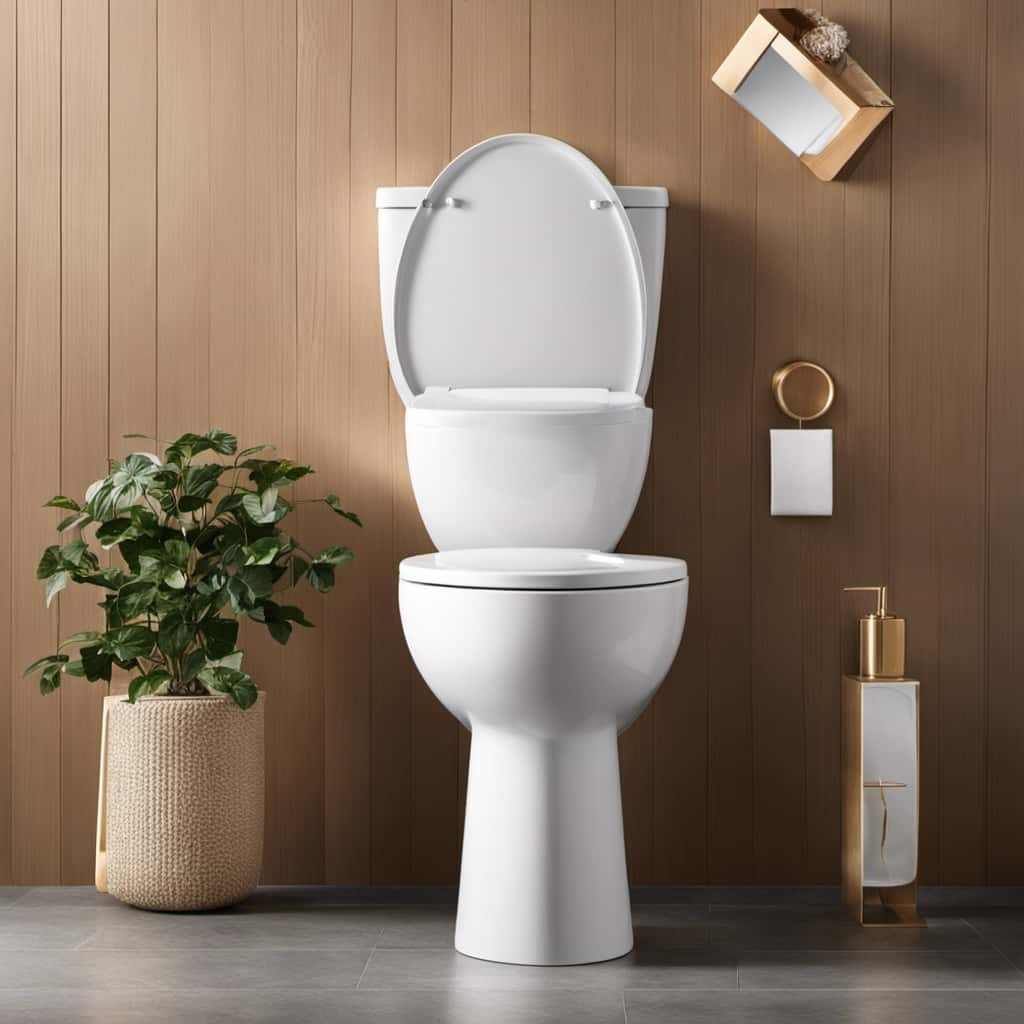
When disposing of cotton swabs, it’s recommended to choose biodegradable options whenever possible. These swabs are made from materials that can break down naturally over time, reducing their impact on the environment.
Additionally, some recycling programs accept cotton swabs made from recyclable materials. Before disposing of cotton swabs, it’s crucial to check with local recycling facilities to see if they accept these items.
Tips for Maintaining a Healthy Toilet System
To ensure a healthy toilet system, we recommend regularly cleaning and disinfecting the bowl using a toilet cleaner. This will help prevent the buildup of bacteria and germs that can lead to unpleasant odors and potential health risks.
In addition to regular cleaning, there are other important tips to consider for maintaining a healthy toilet system:
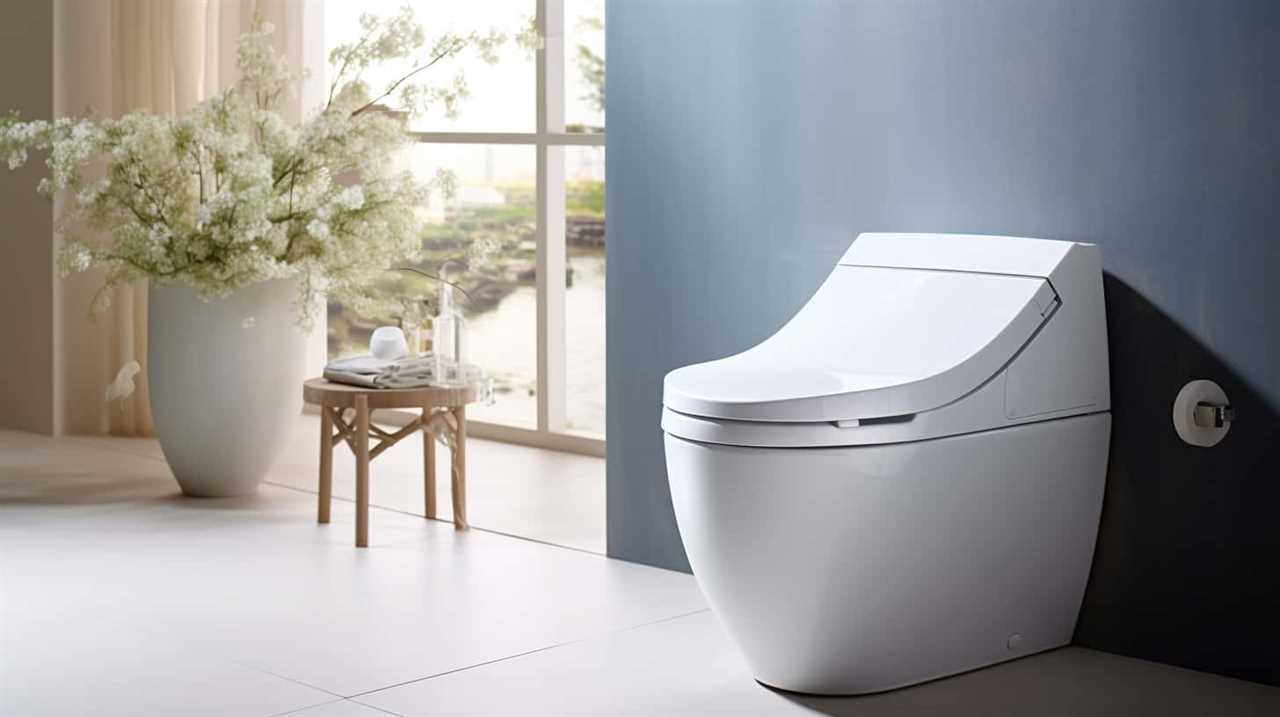
- Be mindful of what you flush down the toilet to avoid toilet clogs. Only flush toilet paper and bodily waste, as other items such as cotton swabs, wipes, and feminine hygiene products can cause blockages.
- Check the toilet tank for any leaks or cracks, as they can lead to water waste and potential damage to the surrounding area.
- Schedule regular inspections and maintenance by a professional plumber to address any potential issues and ensure optimal toilet performance.
Frequently Asked Questions
Can Flushing Cotton Swabs Down the Toilet Cause Clogs in My Plumbing?
Flushing cotton swabs down the toilet can cause possible damage to your plumbing system, leading to potential blockages. It is important to avoid this practice to maintain the integrity and functionality of your plumbing.
Is Flushing Cotton Swabs Harmful to the Environment?
Flushing cotton swabs down the toilet can have a detrimental impact on the environment. Improper disposal of these items can lead to long-term consequences such as pollution and harm to aquatic life.
Are There Any Alternatives to Flushing Cotton Swabs Down the Toilet?
There are alternative options to flushing cotton swabs down the toilet. Reusable options, such as bamboo or metal swabs, are available. Additionally, composting methods can be used to safely dispose of cotton swabs.
What Is the Proper Way to Dispose of Cotton Swabs?
The proper way to dispose of cotton swabs is to place them in a trash bin. Flushing them down the toilet can have negative environmental impacts, such as clogging pipes and polluting water sources.
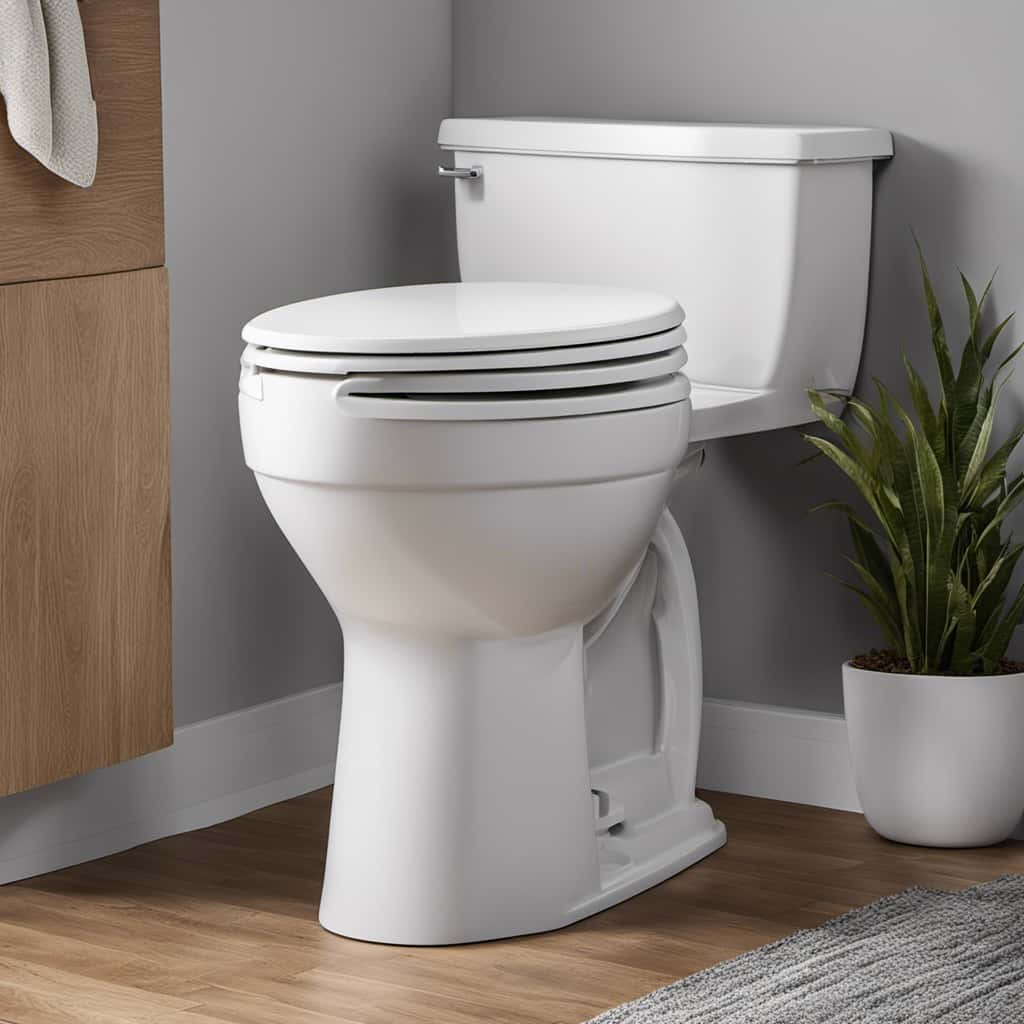
How Can I Maintain a Healthy Toilet System and Prevent Any Issues Related to Flushing Cotton Swabs?
To maintain a healthy toilet system and prevent plumbing issues, we need to be mindful of what we flush. Proper toilet maintenance includes avoiding the temptation to flush cotton swabs, as they can cause clogs and damage pipes.
Conclusion
In conclusion, it isn’t safe to flush cotton swabs down the toilet. Doing so can pose potential risks to your plumbing system and cause environmental harm. Instead, it’s recommended to dispose of cotton swabs in the trash or opt for more eco-friendly alternatives.
By treating your toilet system with care and considering proper disposal methods, you can maintain a healthy and efficient plumbing system. Just like how a well-oiled machine operates smoothly.

